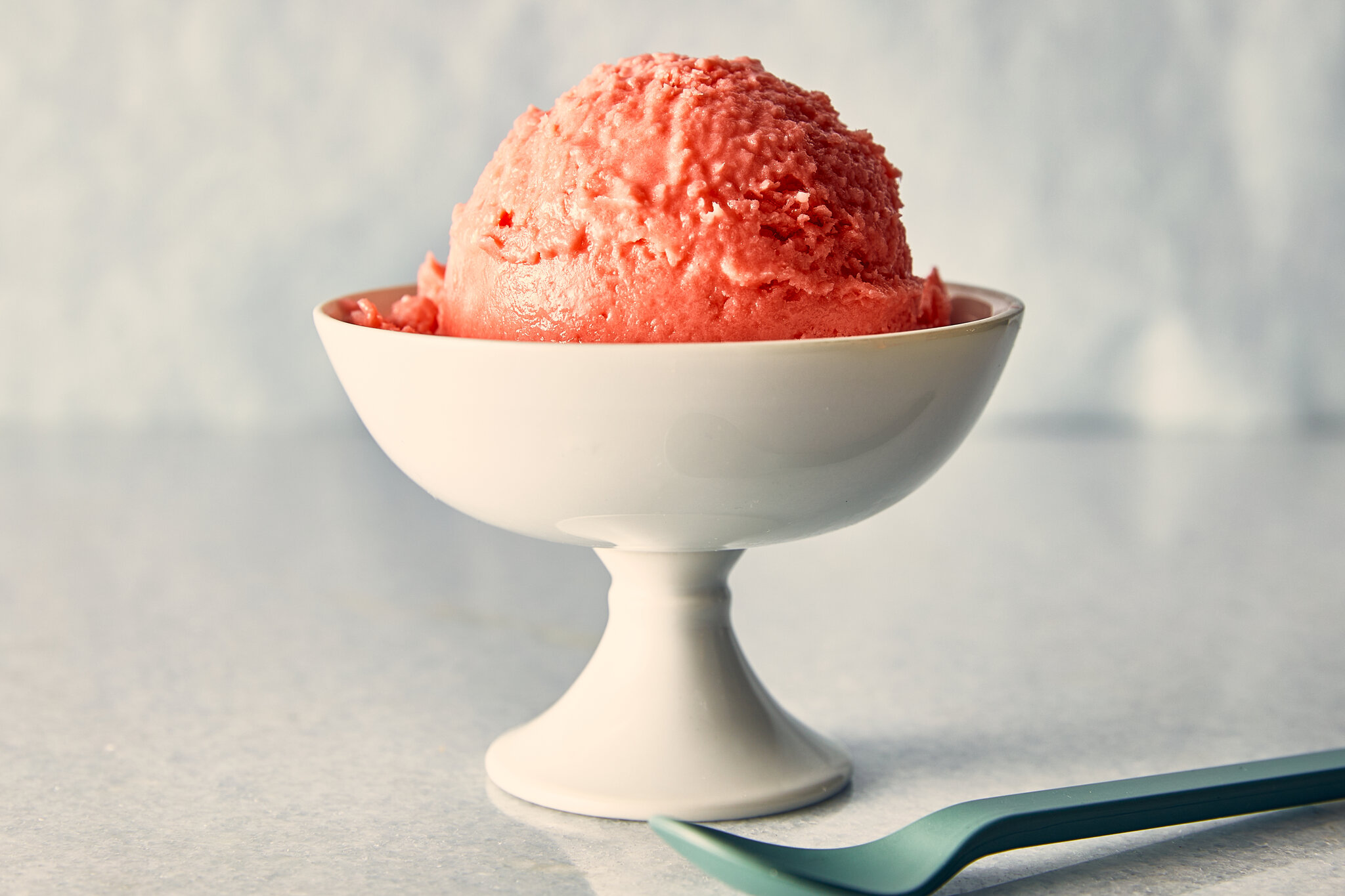
Sherbet is a delicious frozen treat that has been enjoyed by people of all ages for centuries. With its vibrant colors and refreshing flavors, sherbet has become a staple in many households. Apart from its taste, sherbet also boasts some impressive nutritional facts that make it a healthier alternative to other frozen desserts.
In this article, we will explore 15 sherbet nutritional facts that you need to know. Whether you are a health-conscious individual or simply love indulging in frozen treats, understanding the nutritional value of sherbet can help you make informed choices and enjoy it guilt-free.
From its low calorie count to its high vitamin content, we will uncover the benefits of sherbet consumption and share some tips on how to make the most out of this delectable dessert. So, let’s dive into the world of sherbet and discover why it’s not just a delicious treat, but also a smart choice for those looking for a healthier option.
Key Takeaways:
- Sherbet is a refreshing and low-calorie dessert option with high vitamin C and calcium content. It’s a guilt-free indulgence, but should be enjoyed in moderation due to its high sugar content.
- Sherbet comes in various fruity flavors, making it a fun and versatile treat. It’s a good source of vitamins and minerals, and can be enjoyed by vegans and those with dairy sensitivities.
Sherbet is low in calories.
Sherbet is a delicious frozen treat that is relatively low in calories compared to other desserts. It can be a guilt-free indulgence for those watching their calorie intake.
Sherbet is a good source of vitamin C.
One of the nutritional benefits of sherbet is its high vitamin C content. Vitamin C is essential for a strong immune system and helps in the absorption of iron.
Sherbet is typically fat-free.
Unlike ice cream, sherbet is typically made without added fats. This makes it a lighter and healthier option for those looking to reduce their fat intake.
Sherbet contains natural fruit flavors.
Many sherbet flavors are made with real fruit, providing a naturally refreshing taste. This makes it a great choice for those who enjoy fruity flavors.
Sherbet is a good source of calcium.
Sherbet is often made with dairy or fortified with calcium, making it a good source of this essential mineral for maintaining strong bones and teeth.
Sherbet is high in sugar.
It’s important to note that sherbet does contain a high amount of sugar. Individuals on a restricted sugar intake should consume sherbet in moderation.
Sherbet is a refreshing dessert option.
The cool and refreshing texture of sherbet makes it a perfect choice for a refreshing dessert on a hot day.
Sherbet is typically lower in fat than ice cream.
If you are looking for a frozen treat that is lower in fat than ice cream, sherbet is a great alternative.
Sherbet is a good source of vitamins and minerals.
Sherbet often contains various vitamins and minerals, depending on the added fruit flavors. It can be a tasty way to incorporate nutrients into your diet.
Sherbet comes in a variety of flavors.
From classic fruit flavors like strawberry and orange to more adventurous choices like mango or raspberry, there is a sherbet flavor to suit everyone’s taste preferences.
Sherbet is a popular choice for sorbet floats.
For a fun and refreshing twist, sherbet is often used as a base for sorbet floats. Simply add some carbonated soda for a bubbly and flavorful treat.
Sherbet is lower in dairy compared to ice cream.
If you are lactose intolerant or have a dairy sensitivity, sherbet can be a suitable alternative to ice cream as it typically contains lower amounts of dairy.
Sherbet can be enjoyed by vegans.
There are vegan-friendly versions of sherbet available, made without any animal-derived ingredients. Vegans can enjoy this frozen treat without compromising their dietary choices.
Sherbet is best enjoyed in moderation.
While sherbet can be a tasty and refreshing treat, it’s important to consume it in moderation as part of a balanced diet.
Sherbet can be used as a garnish or topping.
Sherbet can be a versatile ingredient in the kitchen. It can be used as a colorful garnish for cakes and desserts or as a topping for fruit salads.
Conclusion
In conclusion, sherbet is a delicious and refreshing treat that offers various nutritional benefits. With its low-fat content, high vitamin C levels, and natural fruit flavors, sherbet can be enjoyed guilt-free. It provides a burst of flavor without compromising on health.However, it’s important to consume sherbet in moderation, as it still contains sugar and calories. As with any food, balance is key. Enjoying sherbet as an occasional treat can be a delightful way to satisfy your craving for something sweet while reaping some nutritional benefits at the same time.So the next time you’re looking for a cool and tasty dessert option, consider indulging in some sherbet. With its vibrant flavors and healthful properties, it’s a treat that can easily brighten up your day.
FAQs
1. Is sherbet a healthy dessert option?
Sherbet can be considered a healthier dessert option compared to ice cream since it contains less fat and calories. However, it is still important to consume sherbet in moderation due to its sugar content.
2. Can sherbet provide any nutritional benefits?
Yes, sherbet can provide certain nutritional benefits. It is a good source of vitamin C and may contain other vitamins and minerals depending on the fruits used in its preparation.
3. Can sherbet be eaten by individuals with lactose intolerance?
Yes, sherbet can be a suitable dessert option for individuals with lactose intolerance as it does not typically contain dairy milk. However, it is always important to check the ingredients list to ensure that there are no milk-based products added.
4. Does sherbet contain any artificial colors or flavors?
Sherbet recipes can vary, but many brands and homemade versions use natural fruit flavors and colors. It’s always advisable to read the labels or inquire about the ingredients to ensure that you are choosing a sherbet that aligns with your preferences.
5. Can sherbet be part of a balanced diet?
Yes, incorporating sherbet into a balanced diet is possible. It can be enjoyed as an occasional dessert option, along with other nutritious food choices such as fruits, vegetables, whole grains, lean proteins, and healthy fats.
Was this page helpful?
Our commitment to delivering trustworthy and engaging content is at the heart of what we do. Each fact on our site is contributed by real users like you, bringing a wealth of diverse insights and information. To ensure the highest standards of accuracy and reliability, our dedicated editors meticulously review each submission. This process guarantees that the facts we share are not only fascinating but also credible. Trust in our commitment to quality and authenticity as you explore and learn with us.


